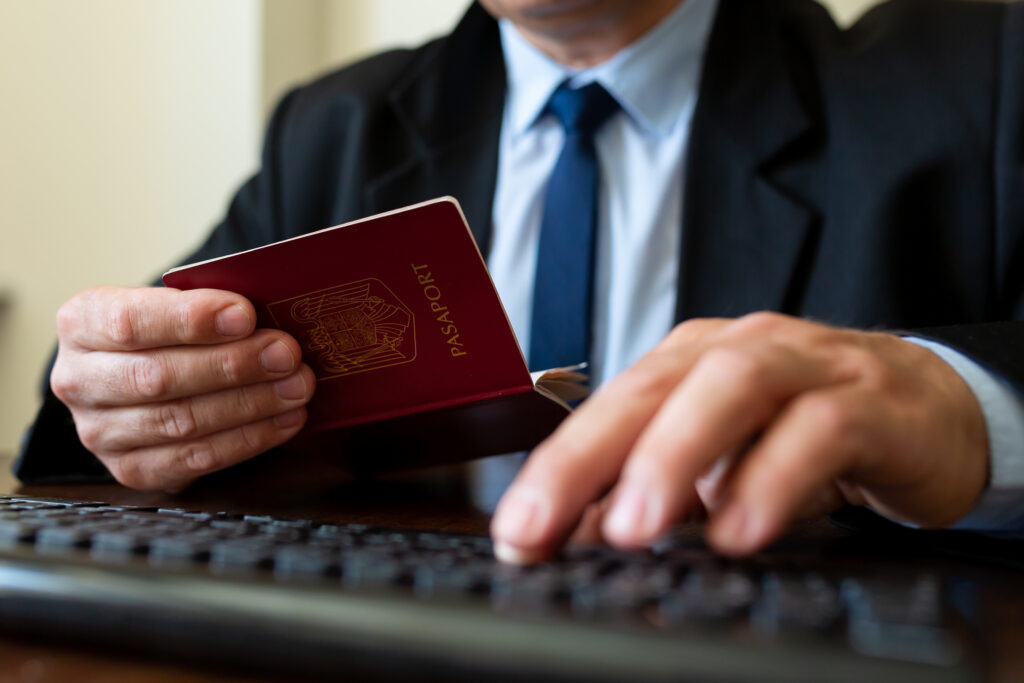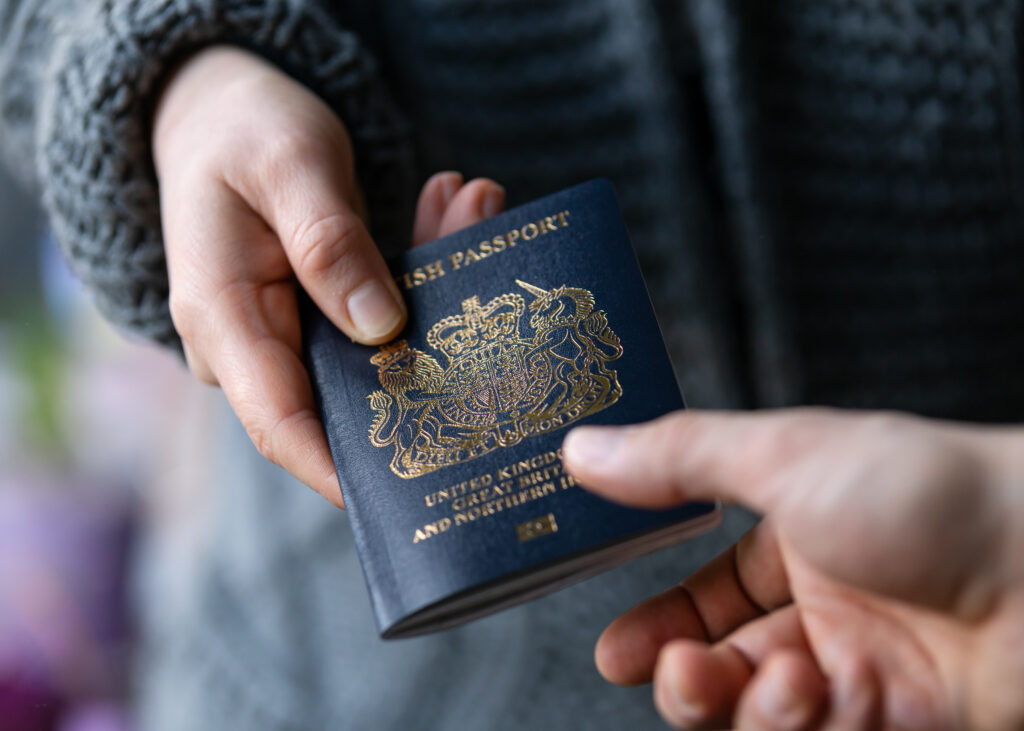
Between March 2005 and March 2025, the CCRC referred 62 convictions to the appeal courts which had resulted from immigration offences committed in the process of individuals seeking asylum. 55 of these were later quashed.
Immigration Offences
Typically, applicants in these cases had arrived at a UK airport either without a passport or carrying a false passport.
In the case of false passports, these had usually been supplied to applicants by a third-party who would require that the passport be returned either on the airplane or on arrival in the UK.
When approached at immigration control, applicants invariably admitted they had no passport or that the passport they were carrying was not theirs. Most claimed asylum on arrival.
Applicants to the CCRC were most often fleeing political or religious persecution in their country of origin because of their political activities, faith or sexuality. Countries of origin included Syria, Somalia, Cameroon and Iran.
Some had come directly to the UK whilst others had travelled through several different countries by various means of transport before they arrived. Some intended to claim asylum in the UK whilst others were attempting to carry on their journeys to claim asylum in other countries.

At the Border
Most applicants told immigration authorities and the police that they were in danger – many in fear of their lives – if they were returned to their country of origin.
In many instances, asylum-seekers had no way of obtaining or using their own immigration documents.
Sometimes this was because using their own passport would alert government authorities if they attempted to leave their country of origin.
Other times, it was because their country of origin did not have a passport issuing authority or because passports from their country of origin were not recognised by the UK government at that time.
Applicants would be arrested at the airport and charged with offences including:
- Possession of a false identity document with intent
- Failing to produce an immigration document
These offences were contrary to the the Immigration and Asylum Act 1999, the Asylum and Immigration (Treatment of Claimants, etc.) Act 2004, the Identity Cards Act 2006 (repealed), and the Identity Documents Act 2010.
Advice and Court Proceedings
Most applicants pleaded guilty in either Magistrates’ Court or the Crown Court. This usually followed legal advice that:
- The case against them was strong
- They had no available defence
- They had no reasonable chance of successfully contesting the charge
Sentences ranged from a few weeks to up to two years’ imprisonment. Some applicants were also recommended for deportation.
In the majority of cases, following their conviction and after they had served their sentences, applicants were granted asylum with leave to remain by the UK government.
However this was often only after an initial refusal of asylum had been overturned on appeal by the First-Tier Tribunal (Immigration and Asylum).
CCRC Reviews of Immigration Offences

These defences were provided in the same legislation under which the applicant had been convicted of an offence.
Asylum seekers who did not have a passport because they had no way of obtaining one, or who had their passport taken away from them in their country of origin, had a “reasonable excuse” for failing to produce a valid passport at the UK border.
This “reasonable excuse” would have provided them with a complete defence.
The legal advice provided to these asylum-seekers had therefore deprived them of a defence which would probably have succeeded.
Consequently, the CCRC decided in these cases that there was a real possibility the Crown Court or Court of Appeal would find that the conviction should not be upheld on the grounds the prosecution had been an abuse of process.
Ms R

Ms R had been arrested after presenting a false UK passport to an immigration officer at Gatwick Airport as she tried to board a flight to Canada in May 2008. On legal advice, Ms R admitted in interview to being a Sudanese national and to using a false travel document.
The same month at Lewes Crown Court, she pleaded guilty to an offence under section 25(1)(a) of the Identity Cards Act 2006 and was sentenced to 12 months’ imprisonment.
Following her arrest in 2008, Ms R stated that she had left Sudan for Ethiopia in 2006 and was offered employment in Italy.
However, when she travelled to Italy, under arrangements made by her “employers,” she was forced to work illegally in the sex industry.
As a result, she became pregnant and attempted to leave but was beaten. With help she eventually managed to escape and was arrested whilst attempting to flee to Canada via the UK.
After the Home Office initially refused asylum to Ms R and her child (born in July 2008), she was recognised by the First-Tier Tribunal (Immigration and Asylum) as a victim of trafficking.
In December 2015, Ms R and her child were granted asylum with leave to remain in the UK until 2021.
Ms R had sought to appeal against her false passport conviction, but the appeal had been dismissed. In November 2017, she applied to the CCRC.
After an investigation, the CCRC decided to refer Ms R’s conviction in February 2019 to the Court of Appeal and, in January 2020, the conviction was quashed.
Mr C
In another case, Mr C, an Iranian national, had been involved over a number of years with anti-government activity in his country. He had been imprisoned on several occasions and was tortured.
In March 2011, in fear of his life, he fled overland to Turkey. From there he travelled by sea to Greece where agents/traffickers took his Iranian passport and provided him with a false document.
In September 2011, Mr C used that false passport to board a flight from Greece to Manchester. During the flight he gave the false passport back. On landing, he informed airport staff that he had no passport, and he was arrested.
Four days later Mr C appeared at Trafford Magistrates’ Court, where, having been advised to do so by a solicitor, he pleaded guilty to the charge of failing to provide a valid immigration document contrary to section 2(1) of the Asylum and Immigration (Treatment of Claimants) Act 2004. He was sentenced to four months’ imprisonment.
Early in 2012, the Home Office granted Mr C asylum with leave to remain for five years. In January 2017, he was granted leave to remain until 2020. In November 2017, Mr C applied to the CCRC.
A review found that Mr C had a statutory defence to the charge on which he was convicted available to him under section 2 of the 2004 Act, namely a “reasonable excuse” for failing to produce a genuine immigration document.
The legal advice provided to Mr C deprived him of a defence that would probably have succeeded. Consequently, the CCRC found there to be a real possibility the Crown Court would quash the conviction.
The CCRC made the referral in July 2019 and the Crown Court quashed the conviction in December 2019.

You can view all of the CCRC’s asylum and immigration cases here.
The CCRC continues to refer the cases of asylum-seekers convicted in similar circumstances. If you believe you have been wrongly convicted of a crime or unfairly sentenced, you can apply to the CCRC for a free review of your case.
